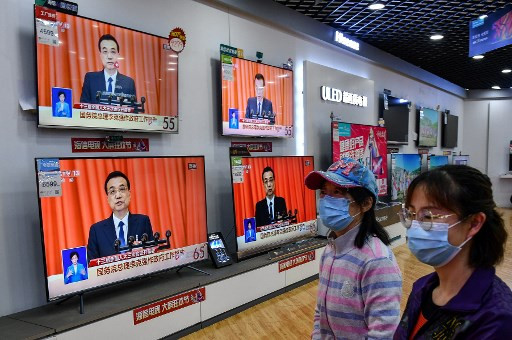The US health reform: The lessons for us all
A friend grumbled as to why everyone had got so excited about the US healthcare law
Change Size

A
friend grumbled as to why everyone had got so excited about the US healthcare law. It has nothing to do with us. The US Health Law will do nothing about our dysfunctional health and insurance system.
He had a point. The new law will not benefit any Indonesians except those who are on the way to becoming a US resident. But I am afraid he missed one good point: learning how to push a reform agenda.
Here are some lessons we can learn from the recent US healthcare reform debate.
Lesson one: Identify the problems. There’s no point in pushing reform if there are no problems to solve. We need to be specific. It is not enough to say “we want a happier life” or “a healthier society”.
Obama’s proposal aims to solve two main issues: how to provide insurance coverage to 47 million
or 15 percent of Americans, and how to curb ever-increasing medical costs.
Lesson two: Identify what caused the problems. Most of the uninsured do not have insurance because
they cannot afford it. Some were turned down because of “pre-existing conditions”.
Some lost their insurance when they became unemployed. Some healthy people chose not to purchase insurance. It was an individual choice. But such decisions meant the average health risk of the insured people was higher, bringing the overall premium up.
The reason for the increasing costs is, in short, market failure and misaligned incentives. In the healthcare market, supply dictates demand.
Doctors, the pharmaceutical industry and medical technology companies determine which procedures the patients receive, not so much the other way round. Potential lawsuit costs and lack of competition among providers are considered additional reasons.
Lesson three: Formulate the solutions. This is tricky. There may be multiple solutions, so we have to choose. Our choice will depend on how we see the world, which will affect what we think needs to be fixed first.
In the US, if you are a Republican, most likely you would argue for bringing more competition in the healthcare and insurance markets, fixing the government-run Medicare and Medicaid so they don’t bring the overall costs up, and giving tax incentives for individuals to purchase insurance.
If you are a Democrat, you would call for more regulation instead of competition, force individuals to have insurance through a mandate, require employers to provide health insurance, prohibit insurers from barring individuals with pre-existing conditions, and expand the government insurance scheme.
And if you are a far-left Democrat, you may also ask for a government-owned commercial insurance company (a solution which was left out by Obama).
Personally, I am with the Republicans on many economic issues. But when it comes to the healthcare market, I believe the presence of market failure means we need the government to fix it. But this comes with a caveat: don’t just say, “Markets fail, markets are bad, we need the government”. We also need to say how we want the government to fix it.
Do we want it to set a mandate? To regulate? To finance? Or to directly provide a service? This in itself needs another set of discussions.
This brings us to lesson four: Understand the trade-offs. As Harvard’s Greg Mankiw pointed out, in most cases we will face a trade-off between efficiency and equity. The new US Health Law is heavy on providing equity.
To some extent it will cost the US taxpayers some efficiency, for example the government budget deficit.
The Congress Budget Office said the proposal would actually reduce the deficit from a baseline scenario. But I, like Professor Mankiw, do not really believe it.
Lesson five: Learn from previous successes and failures. There have not been too many success stories to learn from, in fact. Except for Lyndon Johnson’s Medicare and Medicaid launch in 1965.
But Obama clearly learned from Clinton’s failure in 1993, when Clinton got bogged down in micromanagement but failed to find the proper strategy to beat the partisanship.
This time, Obama let the Democrats in Congress wrestle with the details. He distanced himself from the day-to-day process to avoid being a divisive figure.
Lesson six: Be prepared to fight for the proposal politically. We saw how Obama and the Democrat Party threw all their resources at ensuring Congress passed the bill.
It takes arm-twisting and wrestling inside Congress — not only with the Republicans, but also with some conservative and far-left Democrats. But we also saw they
were prepared to negotiate terms, make concessions and change their strategy when they lost the Massachusetts Senate seat to Republican Scott Brown.
So far Obama and his party have only succeeded in turning the bill into law. We still wait to see how they will actually implement the reform and meet the targets. That means we can draw more lessons from them, whether it is a success or a failure.
Now, put it into an Indonesian context. True, they are oceans apart, Indonesia and the United States — literally and metaphorically. Our income per capita is barely one-tenth of the Americans.
Currently, only 28 percent of Indonesians have access to some kind of health insurance (the government claimed a higher figure, but it won’t be close to a half).
More than 60 percent live in rural areas, and two-thirds of our workforce is in the informal sector, so we can’t rely on employment-related insurance.
But it should not stop us from thinking of our own. Perhaps universal coverage is a far too ambitious goal in the short term. Perhaps we should allocate our resources more on fixing other pressing problems, like equity in access and quality of services.
Obama has once again given us some lessons and inspiration: yes, they can, so why can’t we?
The writer is PhD student in economics at the University of Melbourne, Australia, writing a dissertation on health economics, running a blog at www.health-econ.blogspot.com.









